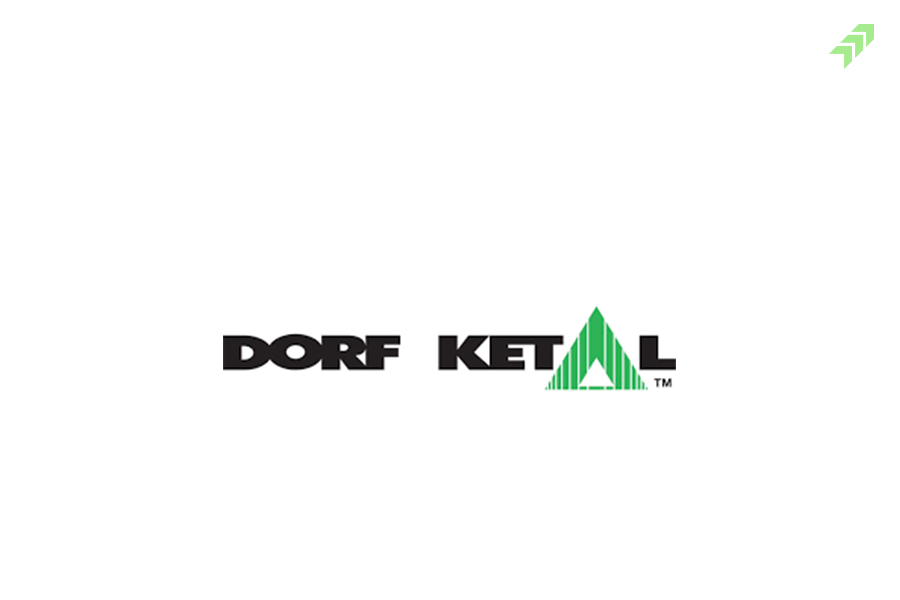Investing in the stock market can be highly profitable but at the same also very risky especially when the market crashes and you do not exit timely. Though, the risk is associated with every business and where you expect high returns the risk would be also high. And stock market is one of the preferred investable destinations that have high risk with high returns.
People who just entered the stock market need to understand the key risks associated with investing in stocks or trading in the market. Here we will discuss types of risk in the stock market and risk associated with the fluctuation of stock prices.
10 Types of Key Risks of Investing in Stocks:
#1 Market or Systematic Risk
This is the main or you can say the prime risk associated with stock while trading in the stock market. This market-related risk is also called systematic risk because the performance of any individual stock is also fully dependent on the overall market moves. This risk is inherited with the stock market and no one can escape from this systematic risk.
When the sentiment of the entire stock market is negative or positive, the individual stocks also move accordingly. The market crash in Sep-Oct 2008 due to the recession or the worldwide stock market smashed in March 2020 because of the pandemic spread across the world.
These are examples of systematic risks that can't be avoided but there are some actions that can be taken to minimize the losses. Hedging the portfolio, known co-related market products and contra-market return products are the techniques to avoid systematic risks.
Also Read: Golden Rules of investing in Stock Market
#2 Volatility Risk
This is another one of the most common risks associated while investing in the stock market. Suppose you have invested your money in a highly volatile stock, then its prices will also fluctuate at a very fast speed compared to other stocks in the market.
A High volatility index (VIX) means the index or stock is highly volatile and reacts faster than any other stock making it risky for the traders or investors to buy the stock at lower prices or book the profits and exit from the position when its price moves up. If you are a newcomer in the stock market, avoid trading into such highly volatile stocks to evade losses.
Also Read: VIX India: How it Works, Calculated & Used for Share Trading
#3 Liquidity Risk
Liquidity risk here is associated with two contexts – One is the capability of the company to get liquidated at the time of paying its debts. Yes, high-debt companies can face problems in paying their bills or liquidating their investment in cash for such needs. These kinds of liquidity-related fundamental factors also affect the price of stock trading in the market.
While on the other hand, liquidity in the stock market means, when buy or sell the stock of any company, you can easily find the buyers or sellers to execute your trade. Sometimes smaller companies' stocks don't have enough volume of buyers or sellers, here you will face a liquidity problem. Hence, buying the stocks has enough volume of trade daily.
Also Read: Importance of Volume in Technical Analysis: Use & Role in Trading
#4 Company Risk
The company-related risk is directly associated with the fundamental factors of the company. If a company is not performing well, its sales and profit are decreasing it will also affect the valuation of the company and eventually impact the stock price.
Apart from financial growth, company risk is also associated with the company's internal management or workforce-related issues like strikes, or some kind of legal issues against the company all have a negative impact on the stock price of the company.
#5 Regulatory Risk
Compare to unlisted companies, companies issued shares in the stock market have to follow additional rules and regulations while operating their business. Any kind of reforms regarding any sector, industry, or company-specific can affect the performance of the company, resulting in the stock price of the company also get affected.
Some sectors are highly regulated, like pharmaceutical, banking, alcohol, cigarettes, and telecommunication. Government can impose duties, taxes or restrict them from producing their products or services. This kind of regulatory risk is associated with the stock price of companies operating in regulatory-related highly sensitive sectors.
#6 Interest Rate Risk
The interest rates of lending and borrowing are regulated by the central bank of a country. Any kind of changes in interest rates on deposits and borrowings from banks will affect the profit margins of the companies taking huge loans from the banks.
Borrowing at higher rates will increase their interest payouts cutting the bottom-line margins. While if interest rates are very low in any country it means, the economy is slowing down and the demand for products and services will also come down. Changes in interest rates primarily affect the stock price of banks and later all the companies having loans.
#7 Inflation Risk
High inflation is one of the major risks for the entire economy. The commodities price increases making the raw material and other expenses more costly for the company reducing its purchasing power resulting in affecting the company’s profit margins. Inflation, directly and indirectly, affects everyone, either the common man or a company, or the entire economy.
Though, some sectors or industries are more sensitive toward inflation. Any kind of increase in the prices of commodities or fuel affects the demand for products and services of companies too. While few companies in the stock market are not affected by a change in inflation. Inflationary risk cannot be avoidable but it's not good if remains long-term.
#8 Taxability Risk
The taxation policy of the Governments, especially corporate taxes imposed on the companies and business houses also affects the growth and earnings of these companies. The higher taxes imposed on any particular industry or sector or individual company also eats the profit margins of the company that eventually affect the stock price of the company.
Different companies operating in different sectors come into different tax brackets. And from time to time, the government keeps changing the tax rates as per the economic conditions or when the government needs more revenue from tax collection. The impact of changes in the corporate taxes rates is also visible in the stock prices of listed companies.
#9 Political Risk
An unstable government is not good for the growth of the economy. Yes, any kind of political unrest in any country also discourages stock market sentiments. If the government is changing and not favourable for the corporate sector, then the stock market reacts. The entire market can fall or the state government is changing, and company-specific stocks get affected.
Unclear economic policy, central banks' inability to control inflation or monitor the monetary policy, fiscal policy, and foreign trade policy all are not good signs of a favourable government. This kind of political instability in any country is not good for economic growth and disturbs the stock market performance resulting in stock prices going down.
#10 Unsystematic Risk
It is also called the “specific risk”, residual risk, diversifiable risk, or non-systematic risk that is associated with company-specific issues. It is a kind of unexpected risk that any company can face at any time during its operations that also affects the stock prices.
And unsystematic risk is like a sudden strike by the employees of the company, a change in the capital structure or business model of the company, inefficiency of the management, entry of a new competitor in the market, and legal issues. This kind of unsystematic risk affects the production and sales of the company which disturbs the net income, resulting in the stock price also getting affected and most probably going down making your investment risky.
Risk Associated with Fluctuation of Stock Prices is...
Finally, any of the above-mentioned risks associated with the fluctuation of stock is going to affect your entire investment in the stock market. The fluctuation in stock prices is a reflection of all types of risks associated with all the listed companies.
At the time of buying the stock of a company, you need to understand or analyze the risks that might be associated with the company. Without understanding the various factors affecting the price movement of stocks never invest in any company. Fundamental and technical analysis are the best ways to find out such things before buying stocks.
Also Read: Technical Analysis vs Fundamental Analysis: Which is Better
Summing-up
There are many types of risk in the stock market that are associated with the economy of a country, industry, sector, or company. And all the risks affect the movement of the stock market and eventually the price of individual stocks of all types of companies. However, investing in the stock market also has benefits that you need to understand to ignore such risks.
Also Read: Why to Invest in Stock Market: 10 Reasons & Benefits of Investing
However, of all the above, market risk is one of the main risks that you can face while investing in the stock market. Stock price movement happens due to the sentiments of investors or traders who usually buy the stocks for gaining some profit by selling them. During intraday trading or short-term trading, volatility in the market is another major risk.
Also Read: 7 Biggest Mistakes To Avoid While Doing Intraday Trading
However, all risk can be absorbed if you have invested in any company with a long-term perspective. And while investing in stocks with a long-term time horizon you need to perform the fundamental analysis that will tell you the market position of the company in the industry, its financial performance, its strength and weakness, and future prospects.
While for short-term or intraday trading use the technical indicators that will help you know the near-term potential of stock movement, or where to buy or sell and book profits or exit timely when have positions in any stock. Using these two important tools and techniques you can minimize your risk while trading or investing in the stock market.
Also Read: Trading or Investing Which is Better and More Profitable
The best way to avoid the risk associated with the fluctuation of stock prices is always taking advice from stock market experts who have better knowledge, skills, and experience in understanding or analyzing the various aspects of the stock market. Fundamental analysts and technical analysts can help you better while buying or selling stocks for better returns.
Moneysukh is providing one of the leading broking houses in India and offers an online trading and investing platform for the stock market, commodities, and forex market. Anyone can open a trading account and demat account with Moneysukh and trade in the stock market or apply for new shares through the IPO and can earn significant money from this place.
Moneysukh offers a one-stop solution for equity, commodity, and currency trading with an online trading platform accessible on desktops and smartphones. Here you will also get stock tips and recommendations to buy or sell stocks for short-term or intraday trading and investing in the long-term with a track record of commendable returns. Trading or investing with Moneysukh you can avoid such risks and enjoy a profitable investment journey.
Also Read: Difference Between Trading and Investing in Stock Market


















No comment yet, add your voice below!